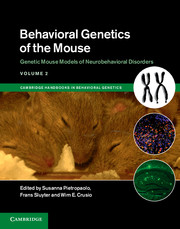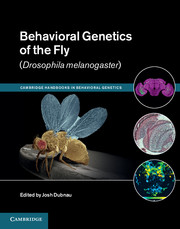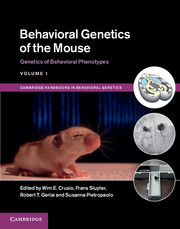3 results in Cambridge Handbooks in Behavioral Genetics

Behavioral Genetics of the Mouse
-
- Published online:
- 05 October 2014
- Print publication:
- 25 September 2014

Behavioral Genetics of the Fly (Drosophila Melanogaster)
-
- Published online:
- 05 July 2014
- Print publication:
- 26 June 2014

Behavioral Genetics of the Mouse
-
- Published online:
- 05 May 2013
- Print publication:
- 25 April 2013



